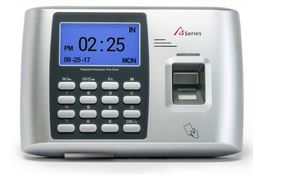Overtime compliance is challenging, but employers have tools at their disposal, including wage and hour audits and safe harbor policies, to limit their liability.
An audit can be particularly effective, said Robert Boonin, an attorney with Dykema in Ann Arbor, Mich., at the SHRM Annual Conference & Expo 2022 in New Orleans on June 14. An audit conducted by a knowledgeable consultant or lawyer can shield employers from double damages, commonly referred to as liquidated damages, he noted at a concurrent session, “Overtime Compliance—It’s Not as Simple as It May Look.”
Overtime pay is due to nonexempt employees for all hours actually worked over 40 in a workweek at the rate of 1.5 times the employee’s regular hourly rate of pay.
The broadest exempt group of employees are white-collar employees, which include:
- Executives.
- Administrative employees.
- Professional employees.
- High-level computer-related occupations.
- Outside sales employees.
New Overtime Rule on Horizon
New overtime proposed regulations are expected to be released as soon as this summer, and these regulations might recommend increasing the current exempt salary level of $684 per week—$35,368 per year—to a higher amount, Boonin noted. This amount might be as high as the $912 per week, or $47,466 per year, that the blocked overtime rule put forward by the Obama administration had provided.
The amount could also be even higher. Sen. Sherrod Brown, D-Ohio, would like to see an exempt salary threshold in the $80,000s, Boonin remarked.
The duties tests might be changed under a new rule to make it more difficult to classify someone as exempt, and there might be periodic increases through indexing. So legal challenges of any new rule, once finalized, are possible, according to Boonin.
He doesn’t believe the salary level and salary basis tests—though in use for years—are derived from any language in the Fair Labor Standards Act (FLSA). He said that when the Obama overtime rule was struck down, the court asked the U.S. Department of Labor (DOL) where it had come up with the salary level rule.
Misclassification
Administrative employees currently are the most commonly misclassified among white-collar exempt employees, Boonin said. If employees support production on the manufacturing floor, they’re not exempt, Boonin said.
The primary duty of administrative employees is performing office or nonmanual work related to the employer’s management or general business operations, or those of a customer.
Moreover, as part of the employee’s primary duties, the individual must exercise independent judgment and discretion with respect to matters of significance to be an administrative employee.
So someone who works in the file room or someone making predetermined choices wouldn’t fit within the exemption, he said.
Someone who has authority to negotiate likely would. For example, if someone in health care is responsible for conducting 30 requests for proposals and negotiating them down to the top three, that’s independent judgment, he said.
Help desk employees almost never are administrative employees, Boonin said. Neither are customer service workers.
Relevant inquiries include whether the employee:
- Has authority to waive or deviate from established policies and procedures without prior approval.
- Provides consultation or expert advice to management.
- Plans long- or short-term business objectives.
- Investigates and resolves matters of significance on behalf of management.
- Represents the institution in handling complaints, arbitrating disputes or resolving grievances.
Professional Exemption
It’s easier to identify the professional exemption, Boonin said.
But it isn’t always easy. For example, a vice president of marketing more likely fits within the executive exemption than the professional exemption.
Primary duties must be in an area requiring specialized higher education and the consistent exercise of discretion and judgment for this exemption to apply, such as in:
- Law.
- Medicine.
- Teaching.
- Psychology.
- Science.
- Social work.
However, Boonin noted that the National Education Association on May 25 called for the DOL to rescind its regulation that lumps teachers in with doctors and lawyers as professionals who are categorically excluded from the protections of the FLSA.
Safe Harbor Policy
In addition to an audit, a well-drafted safe harbor policy can significantly reduce liability for misclassifications.
Boonin recommended following these guidelines when drafting such policies:
- Notifying employees in writing as to the employer’s general salary basis obligations.
- Providing a written complaint procedure.
- Promptly correcting identified errors and promising not to repeat errors.
Moreover, a safe harbor policy should cover all pay-related claims of mistake or underpayment, he said. In addition, complaints should be made by the end of the following pay period.
Remote Work
In addition to overtime risks, there are other types of wage and hour liabilities that employers face, Boonin cautioned.
For example, a lot of people are working remotely and taking breaks that are still compensable. Have a good meal and rest break policy for remote employees, he recommended. Also, have employees certify on their time sheets that they are in compliance, he suggested.
In addition, don’t let nonexempt employees check e-mail at home or else risk a longer compensable workday. If nonexempt employees flout this rule, they must be paid for the extra work time but can be disciplined, Boonin noted.
